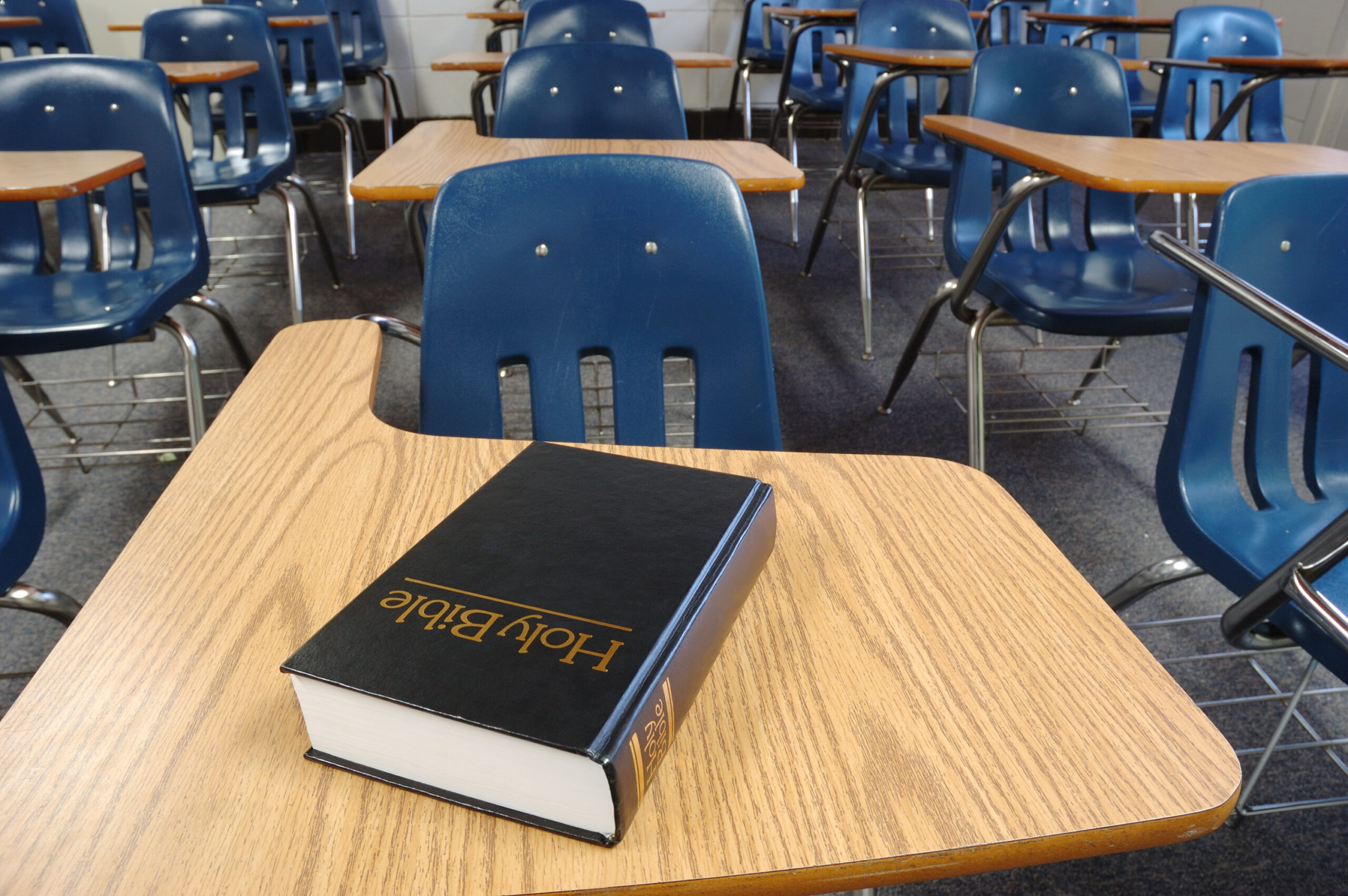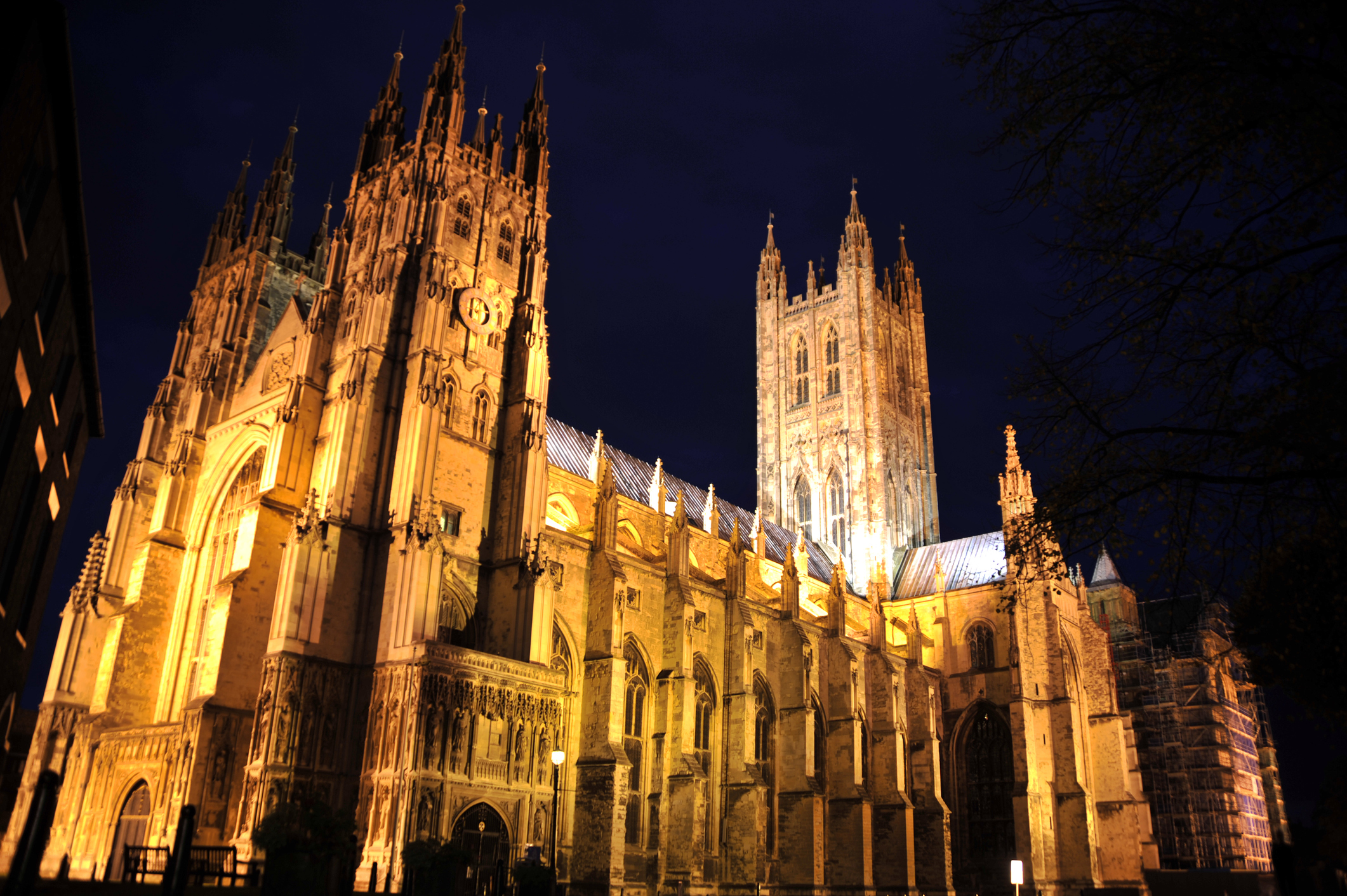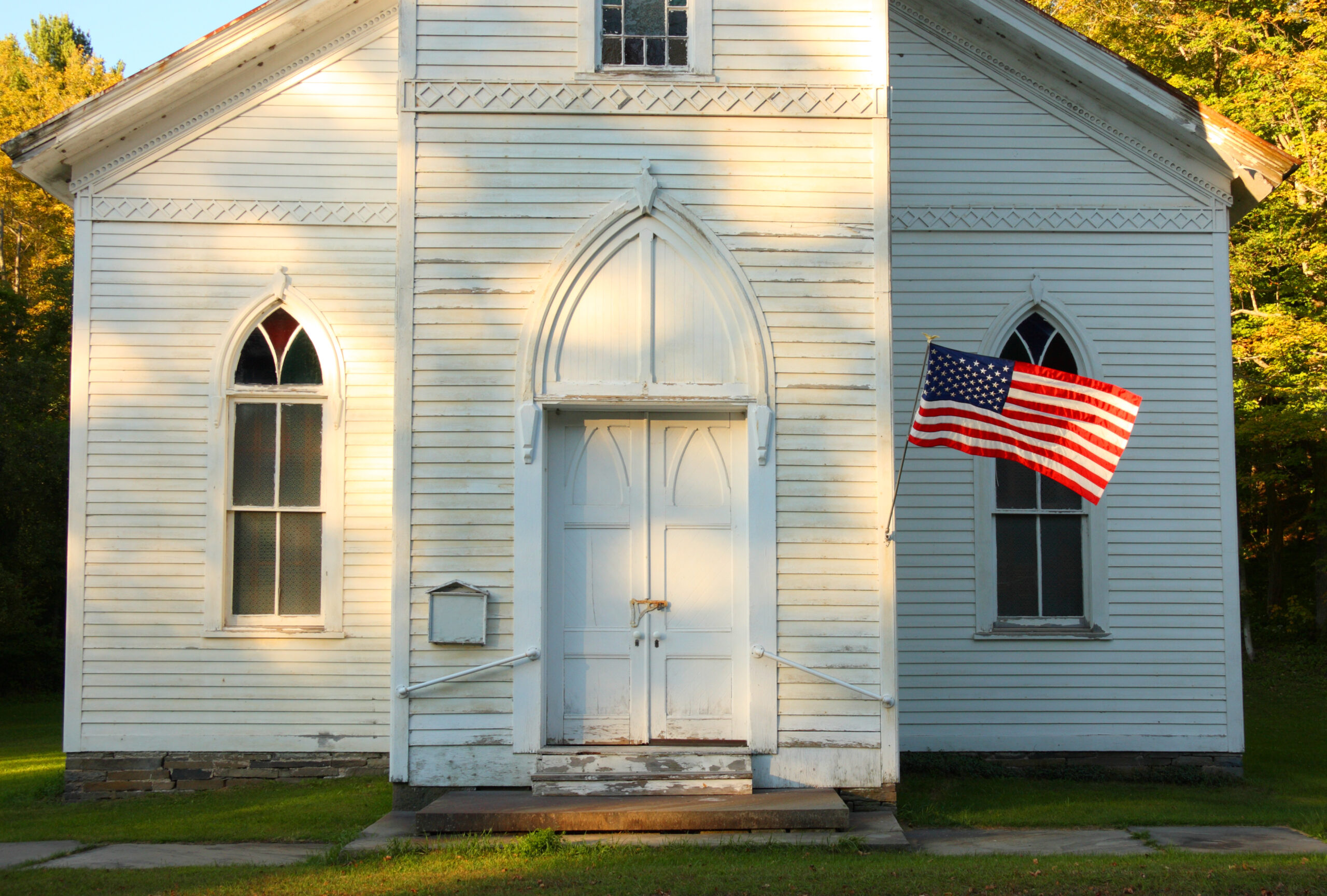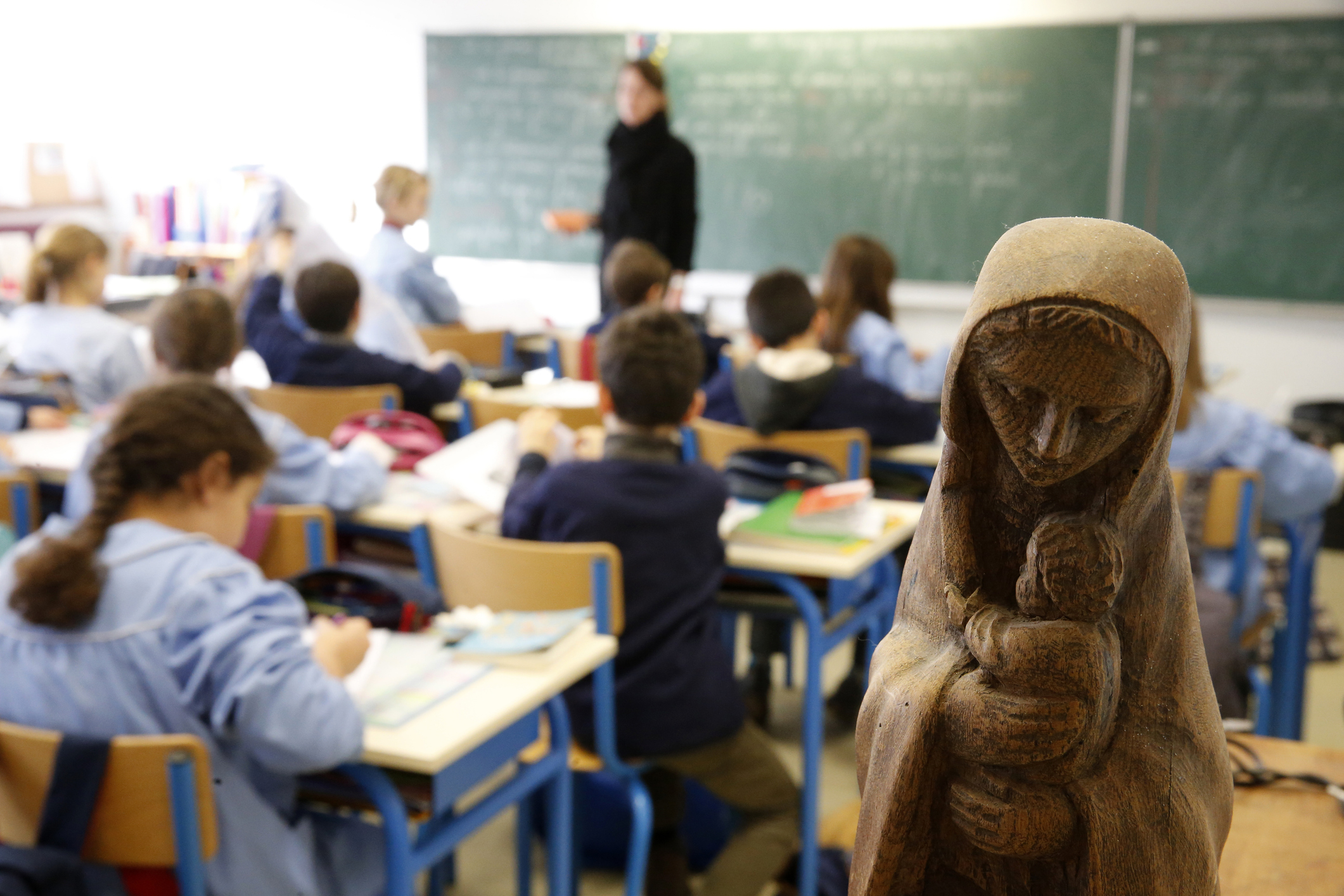The post-Christian West is descending into relativism and, ultimately, nihilism.
The Futile War Against School Choice

Oklahoma could make a giant leap for K-12 education.
Last week, the Oklahoma Supreme Court heard arguments between the Oklahoma Statewide Virtual Charter School Board and the Oklahoma Parent Legislative Advocacy Coalition (OKPLAC).
On one side, the school board defended its decision to include St. Isidore of Seville Catholic Virtual School in their network and fund it like any other public charter school. As a charter, the school operates independently of public school systems and is funded based on its enrollment. Lawyers defending St. Isidore claim it’s simply an option for families who desire that kind of education: “They’re a Catholic school, but they welcome everyone. Nobody is required to go to St. Isidore. That’s very important. It’s an option among many.”
On the other side, the lawyers for OKPLAC argued that this was mixing church and state and could result in “discriminatory practices, such as students being treated differently for their religion, sexual orientation, gender identity or disability—as well as not providing adequate services for students with disabilities.” Essentially, by funding St. Isidore, the state was funding Catholic bigotry.
If this all sounds familiar, that’s because a similar case was tried three years ago in Maine. In Carson v. Makin, a 6-3 majority of the U.S. Supreme Court ruled in favor of families who wanted to use school vouchers to enroll their children into Christian private schools. Even though the opposing attorneys argued that this violated the separation of church and state, the justices concluded, “Maine’s decision to continue excluding religious schools from its tuition assistance program…thus promotes stricter separation of church and state than the Federal Constitution requires.” In other words, if anyone is discriminating, it’s a state program that denies funding to schools because of their religious affiliation.
As I argued at the time, all schools inculcate certain belief systems to some degree: “All education is religious, and all religion involves education. Learning doesn’t happen in a moral vacuum, and it’s dangerously absurd to insist otherwise.” This is no less true if the school is a virtual Catholic charter school in Oklahoma or a rural Christian private school in Maine.
Like their public school counterparts, these religious schools provide a public service of educating young people; they just have a different mission that guides their approach. They are inspired by their faith and aim to produce good Christians, as well as good citizens and workers, by combining Christian teachings with academic instruction. This is hardly different from public schools that are mandated by their local and state governments to produce good citizens, workers, and now activists by combining secular morality with academic instruction.
Pete Hegseth and David Goodwin insist on having a Christian mission when implementing classical schooling in their book Battle for the American Mind. Kids who are forced to look at rainbow flags, posters of Barack Obama, and memorize quotes from Maya Angelou are much less inclined to learn about Latin declensions and read The Odyssey than those who see crosses on the wall, pictures of Jesus, and verses from the Bible. The first setting represents a cheap fad while the second represents a long, distinguished tradition.
One Supreme Court justice hit on this point when she suggested that public schools are “establishing a type of religion” by teaching ideas that contradict religious teachings. After all, aren’t students who disagree with the anti-Christian, anti-conservative worldview espoused by progressive teachers also facing a kind of religious discrimination? No hypotheticals are necessary to answer this. Katy Faust and Stacy Manning discuss this very challenge in Raising Conservative Kids in a Woke City. The pushback they and their children face has little to do with academics and everything to do with woke politics and religion.
After so many decades of trying, it should be clear how futile it is to devise a perfectly neutral public school environment that doesn’t promote a particular metaphysical outlook. For that reason, state and local governments are finally starting to see the need to give families a choice. School vouchers and charter schools achieve this by allowing parents to enroll in a school of their choosing, one that works with them, not against them.
In truth, the prospect of school choice and having to compete for enrollment is what likely lies at the core of this argument. Oklahoma’s Attorney General Gentner Drummond, along with the OKPLAC lawyers, may base their arguments on religious grounds. But their real concern is with any private school receiving public funding, even an obscure virtual Catholic school that serves a few dozen kids who’d otherwise homeschool.
As anyone who follows the school choice debate knows well, those who oppose school choice have been conditioned to view this as a purely zero-sum matter: any dollar that goes to a charter or private school is a dollar that doesn’t go to a public school. They conveniently ignore the waste, mediocrity, and corruption that necessitated a school choice model in the first place. And they really think that some unsuspecting charter school that pops up is the main reason the state’s teachers are underpaid, students are underperforming, and minorities are underserved.
That said, in terms of legal precedent, constitutionality, and Oklahoman politics (Governor Stitt has come out in support of St. Isidore), the court should rule in favor of the Oklahoma Statewide Virtual Charter School Board. Not only would this offer an important choice for families seeking instruction that actually reflects their beliefs and values, but it would also be a step forward for the school choice movement.
It’s time for Oklahoma and the rest of the country to let a thousand flowers bloom in K-12 education. It may differ radically from today’s status quo, but it will finally break up the public school monopoly and empower students and families with better alternatives.
The American Mind presents a range of perspectives. Views are writers’ own and do not necessarily represent those of The Claremont Institute.
The American Mind is a publication of the Claremont Institute, a non-profit 501(c)(3) organization, dedicated to restoring the principles of the American Founding to their rightful, preeminent authority in our national life. Interested in supporting our work? Gifts to the Claremont Institute are tax-deductible.
Christians must reclaim a robust understanding of Christianity’s role in public life.
The divide between church and state doesn’t separate religion from public education.
Don't bend the knee to wokeism.
How radical relativism leads to ideological fanaticism.
Conservatism and vampire stories.






